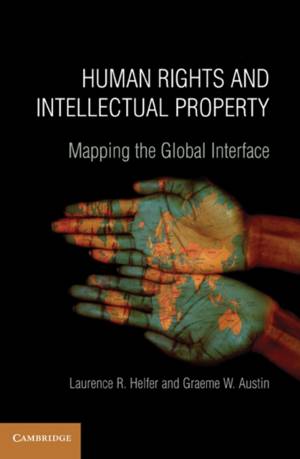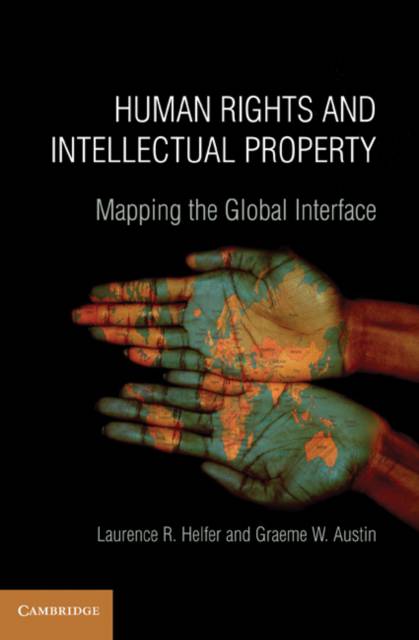
- Afhalen na 1 uur in een winkel met voorraad
- Gratis thuislevering in België vanaf € 30
- Ruim aanbod met 7 miljoen producten
- Afhalen na 1 uur in een winkel met voorraad
- Gratis thuislevering in België vanaf € 30
- Ruim aanbod met 7 miljoen producten
Zoeken
Human Rights and Intellectual Property
Mapping the Global Interface
Laurence R Helfer, Graeme W Austin
Paperback | Engels
€ 68,95
+ 137 punten
Uitvoering
Omschrijving
This book explores the interface between intellectual property and human rights law and policy. The relationship between these two fields has captured the attention of governments, policymakers, and activist communities in a diverse array of international and domestic political and judicial venues. These actors often raise human rights arguments as counterweights to the expansion of intellectual property in areas including freedom of expression, public health, education, privacy, agriculture, and the rights of indigenous peoples. At the same time, creators and owners of intellectual property are asserting a human rights justification for the expansion of legal protections. This book explores the legal, institutional, and political implications of these competing claims in three ways: (1) by offering a framework for exploring the connections and divergences between these subjects; (2) by identifying the pathways along which jurisprudence, policy, and political discourse are likely to evolve; and (3) by serving as a teaching and learning resource for scholars, activists, and students.
Specificaties
Betrokkenen
- Auteur(s):
- Uitgeverij:
Inhoud
- Aantal bladzijden:
- 568
- Taal:
- Engels
Eigenschappen
- Productcode (EAN):
- 9780521711258
- Verschijningsdatum:
- 7/03/2011
- Uitvoering:
- Paperback
- Formaat:
- Trade paperback (VS)
- Afmetingen:
- 155 mm x 226 mm
- Gewicht:
- 771 g

Alleen bij Standaard Boekhandel
+ 137 punten op je klantenkaart van Standaard Boekhandel
Beoordelingen
We publiceren alleen reviews die voldoen aan de voorwaarden voor reviews. Bekijk onze voorwaarden voor reviews.











